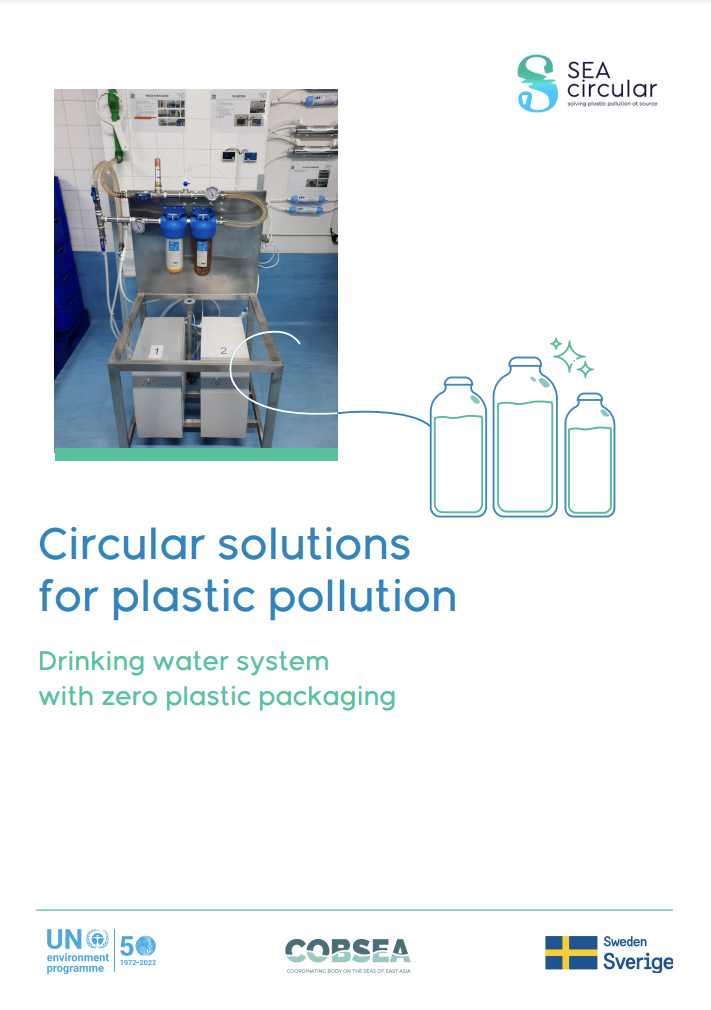This good practice case study is part of a series of knowledge products developed by the SEA circular project to showcase exemplary market-based solutions that bring about transformational changes in how plastic is managed in the value chain. This series captures circular economy approaches to addressing plastic pollution, from innovative business models to behaviour change initiatives. These approaches form part of the SEA circular project’s “circularity framework for the plastic value chain”.
Five Asian countries have been identified as the largest sources of marine plastic pollution globally.1 In Indonesia, over 60 per cent of the 7.8 million tons of plastic waste generated must be managed, adequately disposed of in open dumpsites, or left uncollected. A World Bank study highlighted some of Indonesia’s critical challenges, such as limited waste collection services and limited waste disposal infrastructure, contributing to these numbers. Several priority actions are underway, including promoting a circular economy to prevent plastic pollution at the source and extend the life cycle of plastic items. Aside from a large volume of mismanaged plastic waste, Indonesia faces a significant water crisis: 18 million people lack access to clean water2 and 24 million lack access to a safe and regular water supply.3 Given Indonesia’s archipelagic nature, thousands of water suppliers are in the country, and many do not meet the necessary water quality safety standards and regulations. During the dry season, in certain parts of the country, low-income households could spend as much as one-third of their monthly income on water delivery.
Rural Indonesia resorts to buying clean water for about USD 22.5 per 5,000-litre tank, five a heavy burden for a country where 7 per cent of the population lives on less than USD 3.20 per day.6 Certain parts of the urban population, including establishments, pay ten times the average cost for water.
In this context, PT PIPA, a water sustainability consultant engaged in social and rural development through its affiliate non-governmental organisations (NGOs) – namely the Air Kita Foundation – aims to promote water ethics and education. Since its establishment in 1998, PT PIPA has focused on water efficiency solutions for water utilities and significant water users in the private sector. However, convincing Indonesian society to address the actual cost of water is a significant challenge, despite its growing scarcity and population. A lack of awareness about water as a valuable commodity
means that efforts to optimise the potential of a circular economy have been limited. Still, the reality of growing water risks is already affecting business security in the long run. PT PIPA aims to tackle the dual challenge of plastic and water by addressing “business as usual” practices
and prioritising the hospitality sector, given its consumption of bottled water. PT PIPA’s credentials and expertise allowed it to convince and engage partners on a circular initiative’s financial, social and environmental benefits. It has brought about an innovative and integrated drinking water solution that provides a fast return on investment, a measurable positive carbon footprint and a tangible contribution to plastic avoidance, allowing water to be saved and encouraging accountability


